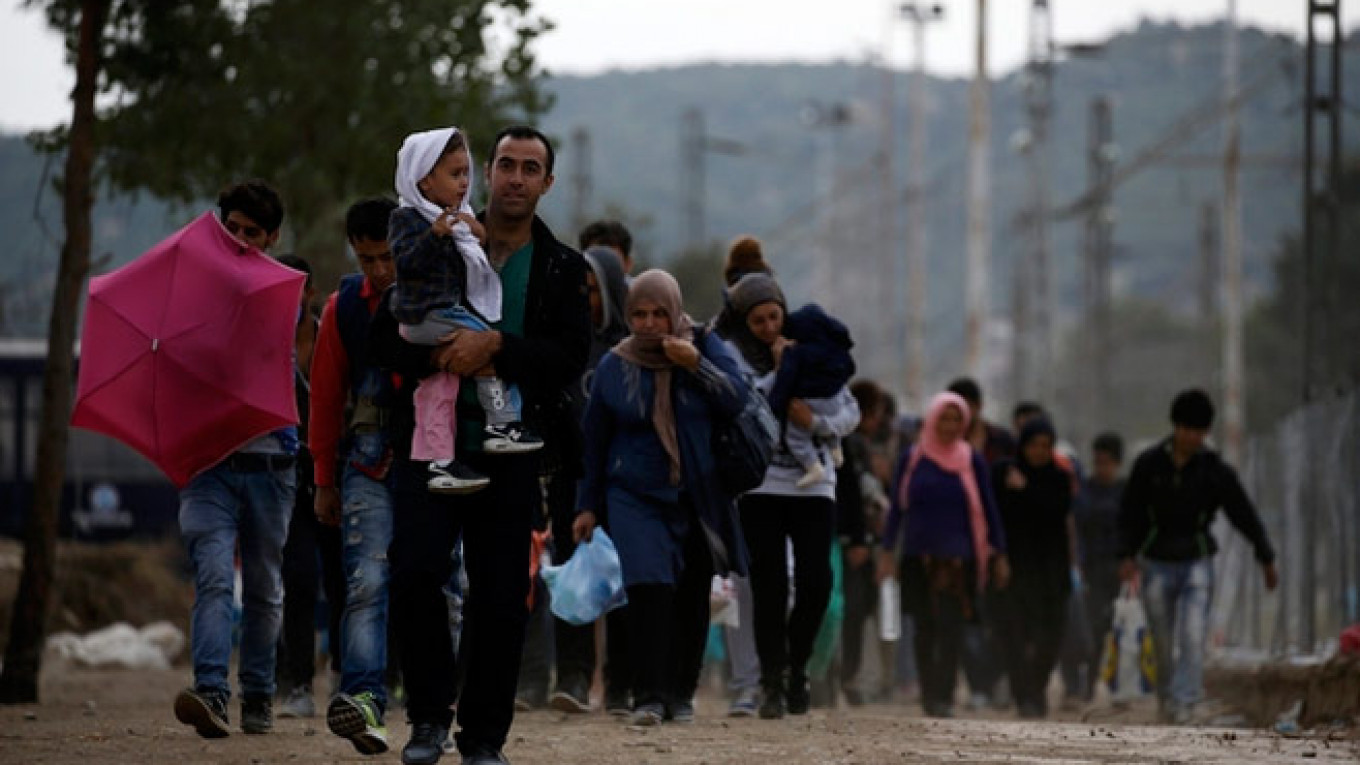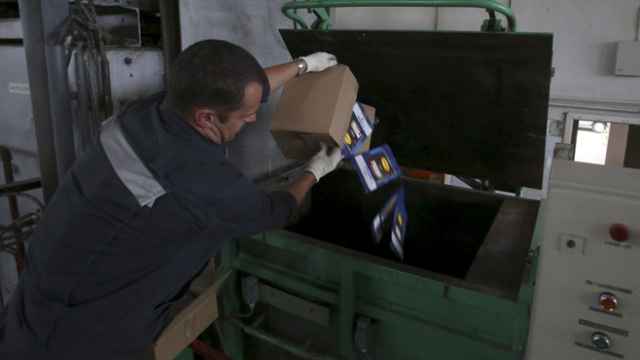When I was a child, I was once caught up in a brief but terrifying flare-up of unrest by the German border.
My parents and I weren't migrants or refugees. We were simply traveling around Europe by car. At that particular border crossing (I think it was in Poland, but am not entirely sure), we encountered a large group of traders who had goods for sale — and were facing some kind of bureaucratic snag at customs.
Because we weren't selling anything, we were allowed to go ahead, but the border guards had failed to take into account that the sight of a lone car passing through would make a bunch of trapped people angry.
I was asleep in the back of my parents' car. I woke up because of shouting. Peering out, I saw that men whose faces were twisted with rage had surrounded the car. The car was rocking. I couldn't see my parents. Suddenly, I heard my mother screaming in horror. Not understanding anything besides the fact that I was in danger, I began to scream as well.
What I know now is that the men wanted to turn the car over and send it flying into a nearby ditch with me trapped inside. Someone was even talking about setting the car on fire. That's why my mother was screaming. When they heard her — and when they heard me — a miracle happened and they came to their senses. We were lucky to escape unharmed.
I think about that incident often as I see footage of terrified Syrian children being passed over barbed wire fences, being held up in the air at crowded train stations, caught up in tear gas attacks, caught up in anti-refugee violence.
I think about how quickly the world can turn hostile — and how helpless children are in dealing with such hostility. How helpless the adults are too.
As terrifying as it was, I'm grateful for my border experience. I think it ultimately made me more empathetic. And it made me realize that safety and stability are often a mirage.
Today, empathy and the understanding that any one of us can suddenly find ourselves in a desperate situation seem to be in short supply. And although plenty of blame for not dealing with the refugee crisis has been laid at the collective feet of the European Union, Russia must also consider its role in this mess, particularly when it comes to Syria.
Russia has said, over and over again, that it has the right to defend its strategic interests in the Middle East — which include a naval facility in Syria's Tartus.
That's great, but if one is going to wade into the Syrian conflict on the side of embattled Syrian President Bashar Assad — accused of countless atrocities against his own people, mind you — then perhaps it's time to also consider taking responsibility for the people fleeing the bloodshed.
"It was the U.S. that started meddling in Syria first! Let them deal with it!" is what the average Russian will tell you.
Fine. The U.S. should also reconsider its incredibly meager efforts to help Syrian refugees in particular, and refugees in general. The U.S. is richer and more powerful than Russia (a fact that Russians hate to admit — unless it comes to such issues as an out-of-control refugee crisis).
Still, I can't help but go back to Russia's insistence that the world today needs to be multipolar. That one superpower making all the big decisions — in this case, the U.S. — is simply not enough.
I've said this before, and I will never get tired of saying it — you can't have a multipolar world by being reactive. You must be proactive.
Russia has an opportunity to be proactive on the refugee crisis. It could do wonders for Russia's image abroad — especially considering the millions spent on what appears to be a largely failed international propaganda campaign.
Even if Russia is not prepared to lend a hand in resettling the refugees (don't tell me they only want to go to Germany, some would come to Russia if given a decent incentive), a secondary, humanitarian role could help alleviate the crisis.
You will tell me that Russia doesn't really care about a multipolar world, and that it couldn't possibly help Syrian refugees since it isn't even moved by the human cost of a shadow conflict with Ukraine on its own border.
Yet Russians also know what it's like to be an outsider in the West. And while recent negativity toward Russia is a debacle of Russia's own making, nasty prejudice has played a part in Russians' outsider status in the past. Hatred and fear of refugees should awaken in Russians a sense of solidarity, as opposed to cynical glee.
The refugee crisis has quickly become one of the most pressing issues of our time. The fact that so few are willing to say "Refugees welcome!" is a collective indictment of us all, and Russia is not an exception.
You can't be a member of the international community only when it suits you.
Neither can you challenge the existing world order by waving nukes about, making angry statements via your foreign minister, and banning French cheese and such.
If Russia really wants to be a global, as opposed to regional, power again, it must learn to walk the walk — and helping solve the refugee crisis would be a good start.
Natalia Antonova is an American playwright and journalist.
A Message from The Moscow Times:
Dear readers,
We are facing unprecedented challenges. Russia's Prosecutor General's Office has designated The Moscow Times as an "undesirable" organization, criminalizing our work and putting our staff at risk of prosecution. This follows our earlier unjust labeling as a "foreign agent."
These actions are direct attempts to silence independent journalism in Russia. The authorities claim our work "discredits the decisions of the Russian leadership." We see things differently: we strive to provide accurate, unbiased reporting on Russia.
We, the journalists of The Moscow Times, refuse to be silenced. But to continue our work, we need your help.
Your support, no matter how small, makes a world of difference. If you can, please support us monthly starting from just $2. It's quick to set up, and every contribution makes a significant impact.
By supporting The Moscow Times, you're defending open, independent journalism in the face of repression. Thank you for standing with us.
Remind me later.








